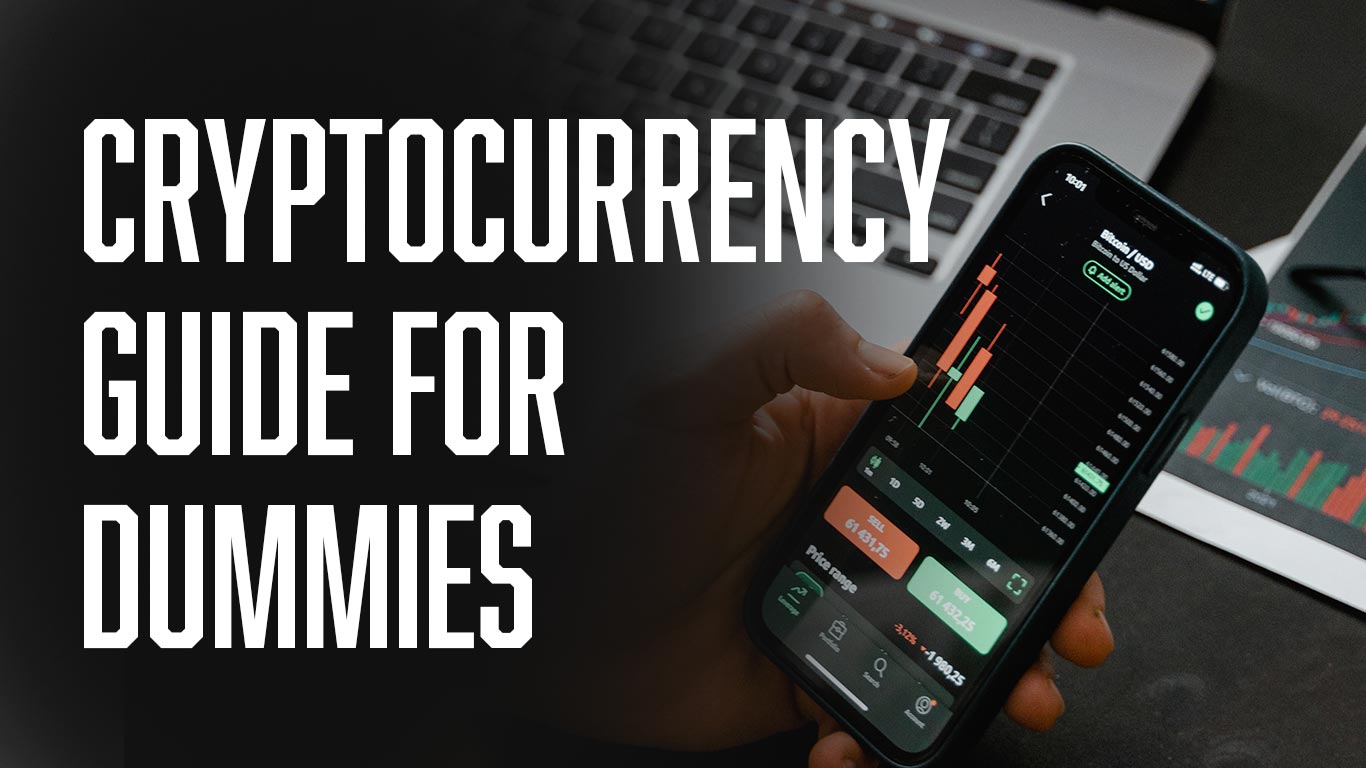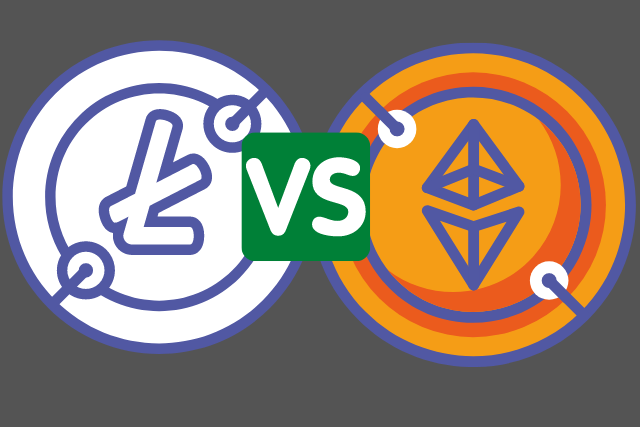As the cryptocurrency market continues to evolve, traders are on the lookout for reliable and efficient trading platforms. In this article, we explore the top crypto trading platforms of the year, examining their features, services, and overall trading experience. We delve into comprehensive reviews, key features, navigating the trading landscape, security solutions, and expert insights to guide you in finding the best platform to suit your crypto trading needs.
Key Takeaways
- eToro is recognized as the best overall platform for crypto trading, offering a mix of user-friendly features and a robust trading environment.
- TradeStation excels with advanced order types, catering to the needs of professional and active traders seeking sophisticated trading tools.
- Interactive Brokers stands out for its competitive commission rates, making it a cost-effective choice for traders focusing on the bottom line.
- Fidelity is noted for its excellent crypto custodian services and low fees, appealing to investors looking for secure and economical asset management.
- Robinhood’s user-friendly mobile app makes it an ideal platform for beginners who prioritize ease of use and a straightforward trading experience.
Comprehensive Reviews of Top Crypto Trading Platforms


eToro: Best Overall for Crypto Trading
eToro stands out as the premier choice for crypto enthusiasts looking to engage in trading, with a trust score of 90 and a minimum deposit ranging from $10 to $10,000. The platform’s strength lies in its social trading features, allowing users to copy the moves of experienced traders, and its extensive range of over 3,479 tradeable symbols.
| Feature | Detail |
|---|---|
| Minimum Deposit | $10 – $10,000 |
| Trust Score | 90 |
| Tradeable Symbols | 3,479 |
| Commission | 0% for stocks & ETFs |
| Crypto Trading Fee | 1% plus spread |
| Special Offer | Deposit $100, get $10 bonus |
eToro’s platform is not only versatile in offering diverse assets but also provides educational resources to help users demystify blockchain and cryptocurrency, making it easier to make informed decisions.
With no fees for sending or receiving transactions, except for a nominal blockchain fee and a conversion fee of 0.1%, eToro is cost-effective. The platform’s user-friendly interface, coupled with top security measures, ensures a seamless and secure trading experience.
TradeStation: Best for Advanced Order Types
TradeStation is renowned for its advanced tools and sophisticated order types, catering to traders who require a robust platform for complex trading strategies. With a $0.00 minimum deposit and no cost for stock trades, it’s an accessible option for both casual and active traders.
The platform’s pricing structure is straightforward for crypto transactions, with maker and taker fees that vary based on account balance. For balances below $100,000, fees range from 0.12% to 0.60%. TradeStation’s commitment to user satisfaction is evident in its award-winning desktop platform and convenient web-based platform, both offering direct-market access and automatic trade execution.
TradeStation’s Simulator is a standout feature, allowing users to test investing strategies without financial risk.
Despite its many benefits, potential users should be aware of certain drawbacks, such as the confusing plans and pricing and the low interest rate on uninvested cash. However, the platform’s strengths in providing a high-quality trading experience, comprehensive research, and an active trader community often outweigh these concerns.
Interactive Brokers: Best Commissions for Crypto
Interactive Brokers stands out in the crypto trading space for its exceptionally low commission rates. Crypto trading costs range from 0.12% to 0.18% of the trade value, with a minimum charge of USD 1.75 per order. This competitive pricing structure is ideal for both casual and active traders seeking to minimize costs.
With no account minimums and zero markups on the underlying spread, Interactive Brokers ensures transparent and cost-effective trading.
For those trading cryptocurrency futures, the platform offers a variety of contracts with commissions that vary depending on the contract type. For example, micro ethereum futures options can incur as low as $0.10 per contract, while CME bitcoin futures contracts may cost up to $5 per contract.
Here’s a quick glance at the commission structure:
| Trade Type | Commission |
|---|---|
| Crypto Assets (Paxos Partnership) | 0.18% or USD 1.75 min |
| Micro Ethereum Futures Option | $0.10 per contract |
| CME Bitcoin Futures Contract | $5 per contract |
Interactive Brokers’ partnership with Paxos also allows access to a range of popular cryptocurrencies, including Bitcoin, providing traders with a robust selection of assets.
Key Features and Services Offered by Leading Platforms


Fidelity: Excellent Crypto Custodian with Low Fees
Fidelity stands out as an excellent crypto custodian with competitive pricing, making it a strong choice for investors looking to engage with digital assets. With no minimum deposit and zero-fee stock trades, Fidelity offers an accessible entry point into the world of cryptocurrency.
Fidelity’s commitment to the crypto space is evident not only in its user-friendly platform but also in its educational resources, which empower investors to make informed decisions.
While currently supporting only bitcoin and ethereum for spot trading, Fidelity’s platform is designed with the future in mind, hinting at potential expansions. The broker’s forward-thinking approach is further exemplified by its early Bitcoin mining initiatives and the establishment of Fidelity Digital Assets in 2018.
Here’s a quick glance at Fidelity’s fee structure:
| Service | Fee |
|---|---|
| Minimum Deposit | $0.00 |
| Stock Trades | $0.00 |
| Options (Per Contract) | $0.65 |
Despite the allure of commission-free Fidelity crypto ETFs and the option to include crypto in retirement plans, traders should be aware of the platform’s comparatively high trading fees for certain services.
Webull: Large Selection of Crypto Assets
Webull stands out in the crypto trading space for its large selection of crypto assets, catering to a diverse range of investor preferences. With a $0.00 minimum deposit and no commission on crypto trades, it’s an accessible platform for many. However, traders should be aware of the 100 bps spread markup, effectively a 1% fee on trades.
Webull’s platform is not just about variety; it also offers advanced tools and features that enhance the trading experience. Real-time quotes and advanced charting tools are available to all users, making it a competitive choice for both beginners and seasoned traders.
Here’s a quick look at what Webull offers:
- 44 crypto assets available for trading
- User-friendly interface with advanced trading tools
- Real-time quotes and a community for trader interaction
- No mutual funds and limited educational support
While Webull may not have the educational resources of some competitors, its low costs and easy-to-use platform make it a strong contender in the crypto trading arena.
Robinhood: User-Friendly Mobile App for Beginners
Robinhood has become a go-to platform for those new to cryptocurrency trading, offering a zero-commission fee model that makes it an attractive option for beginners. With no account minimums and a selection of 15 currencies, it’s easy for anyone to start trading without the need for a large upfront investment.
The platform’s mobile app is particularly noted for its simplicity and ease of use, catering to the preferences of millennial and Gen-Z traders. The app’s design and functionality have played a significant role in lowering the entry barriers for first-time investors.
Robinhood’s commitment to providing a beginner-friendly trading experience is evident in its user-friendly mobile app and educational resources.
However, users should be aware of the limitations, such as the limited number of supported cryptocurrencies and the unavailability of crypto trading in certain states like Hawaii.
| Pros | Cons |
|---|---|
| Simple, easy-to-use platform | Limited cryptocurrency options |
| No trading fees or commissions | Crypto trading not available in Hawaii |
| Accessible to first-time investors |
Robinhood’s approach to trading has democratized access to the financial markets, making it possible for a wider audience to participate in cryptocurrency trading.
Navigating the Crypto Trading Landscape
How to Get Into Crypto Trading
Entering the world of cryptocurrency trading can be both exciting and daunting. Choosing the right trading platform is crucial; it should align with your trading goals and experience level. Here are some steps to get started:
- Choose a suitable broker: Look for one that is properly licensed and offers the features you need.
- Start with a small amount of risk capital to minimize potential losses.
- Educate yourself on market trends and technical analysis to make informed decisions.
- Consider active trader tiers for discounted fees if you plan to trade high volumes.
Remember, crypto trading is not just about making quick profits; it’s about understanding the market dynamics and applying effective risk management strategies. The top crypto trading sites of the year offer advanced features, security, and user-friendly interfaces for traders. Criteria include cost, security, ease of use, supported assets, and payment methods.
While it may seem straightforward to start trading, it’s essential to approach crypto trading with caution to avoid scams and significant losses. Always conduct thorough research before diving in.
Pros & Cons of Crypto Brokers
When delving into the world of crypto trading, it’s crucial to weigh the advantages and disadvantages of using crypto brokers. Here’s a quick rundown:
Pros:
- Regulated financial services provide security and compliance.
- User-friendly platforms make trading accessible.
- Brokers often offer additional financial services.
Cons:
- Limited control over your crypto assets.
- Restricted selection of cryptocurrencies.
- Potential for higher fees compared to some exchanges.
While brokers offer a familiar and convenient gateway to the crypto market, they may not always align with the needs of every investor, especially those looking to engage with decentralized finance or seeking a wider array of crypto assets.
Exploring top platforms for crypto trading can reveal a spectrum of services, from security measures to the choice between centralized and decentralized exchanges. It’s important to consider these factors alongside the use of trading bots and strategies for getting started with crypto trading.
Alternatives to Crypto Brokers
While 2023’s top crypto trading platforms like Crypto.com, Coinbase, and Binance dominate the market, alternatives to traditional crypto brokers are gaining traction. These alternatives offer different benefits and may suit various investor needs better.
For those seeking more control over their funds and a wider array of cryptocurrencies, decentralized exchanges (DEXs) provide a platform where trades are executed directly between participants, without the need for intermediaries. Centralized exchanges (CEXs), on the other hand, offer a more traditional trading experience with added features such as fiat on-ramps, customer support, and advanced trading tools.
- Decentralized Exchanges (DEXs)
- Direct peer-to-peer transactions
- Full control over private keys
- Typically lower fees
- Centralized Exchanges (CEXs)
- User-friendly interfaces
- Higher liquidity
- Regulatory compliance
When considering alternatives to crypto brokers, it’s essential to weigh the trade-offs between ease of use, control, and security. Each platform type comes with its own set of risks and benefits that should be carefully evaluated.
Security and Storage Solutions for Cryptocurrency Investors
The Importance of Secure Crypto Storage
In the realm of cryptocurrency, security is paramount. The right crypto storage solution is crucial for safeguarding your investments. Whether you opt for the convenience of an online platform or the security of a hardware wallet, understanding the risks and benefits is essential.
- Use reputable exchanges or brokers with robust security features.
- Consider hardware wallets for offline storage of digital assets.
- Educate yourself on the pros and cons of self-custody versus third-party custody.
The security measures you choose can significantly impact the safety and accessibility of your cryptocurrency.
It’s important to recognize that crypto assets lack the traditional protections found in bank accounts or brokerage equities. Implementing security measures like two-factor authentication, cold storage, and compliance with industry standards can help build trust and enable diverse trading strategies for effective risk management.
How to Store Cryptocurrency Safely
Storing cryptocurrency safely is a critical aspect of managing digital assets. Choosing the right storage solution is essential to protect your investments from theft and unauthorized access. There are two main types of wallets to consider: hot wallets, which are connected to the internet, and cold wallets, which are offline storage devices.
For those who prioritize security, cold wallets are often the preferred choice. They are not susceptible to online hacking attempts and provide a secure way to store cryptocurrency for the long term. However, it’s important to remember that with great security comes great responsibility. If you opt for a cold wallet, you must ensure that you keep your private keys and recovery phrases in a safe and secure location.
It’s advisable to separate your funds and not keep all your crypto assets in one place. Utilizing multiple cold storages can enhance security and reduce the risk of losing access to all your assets at once.
Remember, the method you choose should align with your technical expertise and personal preferences. Always educate yourself on the pros and cons of different storage options before making a decision.
Comparing Custodial and Non-Custodial Wallets
When it comes to managing your digital assets, the choice between custodial and non-custodial wallets is pivotal. Custodial wallets are managed by a third party, such as an exchange, which holds the private keys on your behalf. This can offer convenience for new investors, as seen with Coinbase’s custodial services. In contrast, non-custodial wallets grant you full control over your private keys and, consequently, your funds.
| Feature | Custodial Wallet | Non-Custodial Wallet |
|---|---|---|
| Control | Third-party | User |
| Security | Lower (risk of third-party breaches) | Higher (user’s responsibility) |
| Convenience | High (less technical knowledge required) | Variable (depends on user expertise) |
| Flexibility | Limited (depends on service provider) | High (full control over funds) |
While custodial solutions offer ease of use, they are often seen as less secure due to the potential for third-party breaches. Non-custodial options, although requiring more technical know-how, provide a higher degree of security as you are in charge of your own private keys.
It’s essential to weigh the pros and cons of each wallet type based on your comfort with technology, security concerns, and investment strategy. Remember, transferring assets between a custodial exchange account and a non-custodial wallet is always an option for those seeking both convenience and control.
Expert Insights and Market Analysis for Crypto Traders


What Is the Best Platform to Trade Crypto?
Determining the best platform to trade crypto hinges on individual needs and preferences. Various crypto trading platforms cater to different types of traders, from beginners to seasoned professionals. For instance, platforms like eToro and TradeStation are lauded for their comprehensive features and advanced order types, respectively.
When selecting a platform, consider the following:
- Security measures and history
- Fee structure and commissions
- Range of cryptocurrencies offered
- User interface and customer support
- Access to market analysis and tools
It’s crucial to assess whether a platform aligns with your trading strategy and goals. While some traders prioritize a user-friendly interface, others may seek advanced charting and analytical tools.
Platforms like Robinhood have gained popularity for their simplicity, making them suitable for beginners. On the other hand, TradeStation appeals to those looking for robust trading systems. It’s important to note that while platforms like Etrade are safe, they do not offer direct crypto trading but are recommended for crypto futures contracts.
Market Trends and Predictions for Crypto Trading
As we navigate through the dynamic world of cryptocurrency trading, understanding market trends and making informed predictions are crucial for traders aiming to capitalize on the volatile crypto markets. The crypto market has maintained its bullish momentum in 2024, with significant rallies in major cryptocurrencies indicating a strong start to the year. This uptrend is exemplified by Ethereum’s impressive 85% rally and Bitcoin’s nearly 150% gain in 2023, setting a positive tone for the months ahead.
Market analysts suggest that the current bullish trend could persist, driven by increased adoption, technological advancements, and investor sentiment. However, traders should remain vigilant, as the market is known for its rapid shifts and unpredictability. To assist traders in their decision-making, here’s a concise overview of key factors to watch:
- Increased institutional investment
- Regulatory developments
- Technological innovations in blockchain
- Market sentiment and investor behavior
While past performance is not indicative of future results, staying abreast of market trends and leveraging robust analysis tools can provide traders with a competitive edge in the ever-evolving crypto landscape.
Decentralized Exchanges: Prospects and Challenges
Decentralized exchanges (DEXs) represent a paradigm shift in the way users interact with crypto markets. They offer a level of autonomy and privacy that centralized platforms cannot match. However, this comes with its own set of challenges, such as the need for technical expertise and a different approach to security.
-
Prospects:
- Peer-to-peer trading
- Transparent transactions and fees
- Potentially lower transaction costs
- No need for personal data disclosure
-
Challenges:
- Requires more technical knowledge
- Limited options for fiat to crypto conversion
- Less regulatory oversight, which can be a double-edged sword
While DEXs are gaining traction among privacy-conscious traders and those looking for more direct control over their transactions, they are not without risks. The lack of regulatory oversight means that users must be diligent in understanding the platforms they use and the assets they trade.
Conclusion
As we wrap up our exploration of the top crypto trading platforms of the year, it’s clear that platforms like eToro, TradeStation, Interactive Brokers, Fidelity, Webull, and Robinhood are leading the charge in providing robust, user-friendly, and diverse trading experiences. Each platform offers unique features that cater to different types of traders, from beginners to advanced users. Whether you prioritize a wide selection of crypto assets, low fees, advanced order types, or a seamless mobile experience, there is a platform on this list that meets your needs. Remember to consider your individual trading goals and requirements when choosing a platform. With the dynamic nature of the crypto market, staying informed and selecting the right broker can make a significant difference in your trading journey.
Frequently Asked Questions
What are the best crypto trading platforms in 2024?
According to various reviews and research, the best crypto trading platforms in 2024 include eToro, TradeStation, Interactive Brokers, Fidelity, Webull, and Robinhood.
Which platform is best for beginners in crypto trading?
Robinhood is considered one of the best platforms for beginners due to its user-friendly mobile app and ease of trading.
Which crypto trading platform offers the best overall experience?
eToro is often cited as the best overall platform for crypto trading because of its balance of features, user experience, and social investing options.
What should I look for in a crypto trading platform?
You should look for platforms with a user-friendly interface, a variety of trading tools, a wide selection of cryptocurrencies, low fees, and robust security measures.
Are there alternatives to using crypto brokers?
Yes, alternatives to crypto brokers include decentralized exchanges (DEXs), although they may have issues with low volumes, high slippage, and the lack of mechanisms to prevent front-running.
How can I store my cryptocurrency safely?
To store cryptocurrency safely, you can use secure storage solutions like hardware wallets (cold storage) or reputable custodial services with robust security measures.






